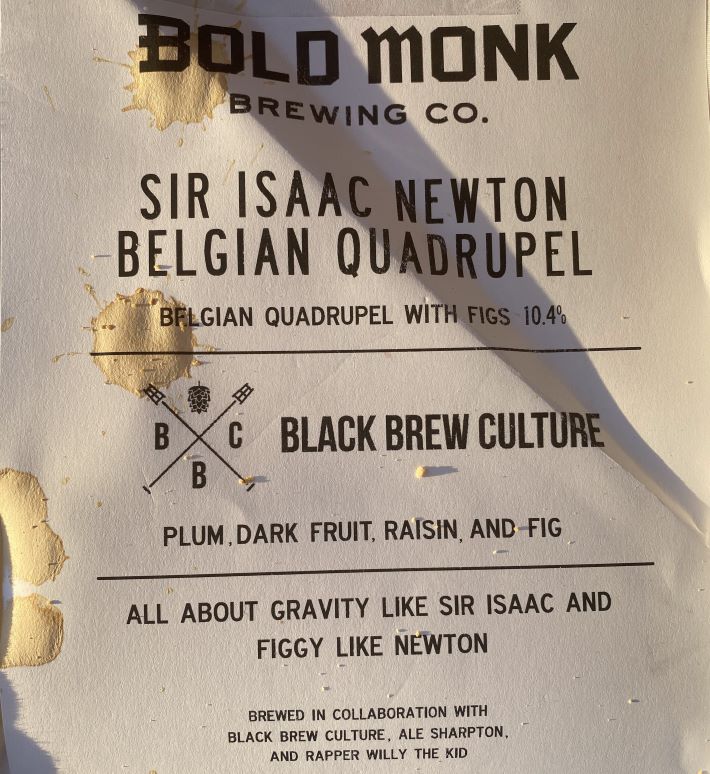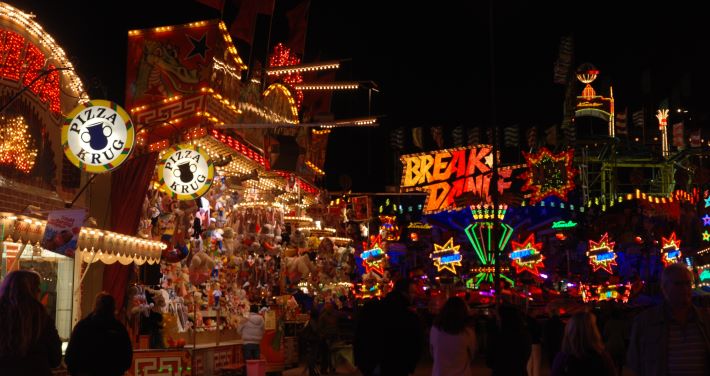
As the hours pass at a beer festival, sometimes a bit of beer is spilled, in this case Saturday during Blacktoberfest in Stone Mountain, Georgia. (If you find some irony in a black beer festival held only a few miles from Stone Mountain Park, where the road into the park is called Jefferson Davis Drive, good for you.) Ale Sharpton suggested the day before the event would be “epic.” Change is underway in Georgia, and it is accelerating. More later.
Meanwhile, a few links you may want to click . . .
But not a drop to drink
More on the discussion about if peasants in medieval times regularly drank beer instead of water because water was unsafe to drink. The latest from Lars Garshol, in which he concludes it is “abundantly clear by now that in the past lots of people did in fact drink beer against thirst every day.” And a recent post from Martyn Cornell the explains why this was not possible for much of the population.
Questions not asked
“Despite its rosy self-mythology, the craft beer landscape used to be full of pieces of shit. It had exploitative owners, power-mad managers, cruel and entitled customers.”
This, from Dave Infante, seems like an overstatement.
We can talk about that another time. Instead, consider this. “Fawning fluff gives pieces of shit room to fester; puff pieces underwrite the status quo.” Hard questions can be hard to ask. I’ve mentioned before that I once worked for a newspaper where the publisher told us, “If we (publish) something about a person, we should (write) something good the next.” Really. Easy questions made his life easier.
By chance, I was still thinking about Infante’s story when I came across this one about a woman who has worked at Deschutes original brewery (a brewpub) for 32 years. In we learn, “(Melissa) Talbott says she has looked at exit plans regarding retirement, but for now, she says she has at least another five years left in her.” And I wondered if she has earned some sort of pension from Deschutes or if the company provides health insurance. Should those questions have been asked and addressed? Asking for a friend.
From the cask
– Pete Brown offers six reasons cask ale-loving publicans should immediately whack the price up.
– Coming soon. Cask Beer: The real story of Britain’s unique beer culture.
Beer writing wanted
– Alan McLeod revisits the why question. “It’s only in the writing that the fixation becomes of value . . . This is the problem with the British Guild of Beer Writers and NAGBW shift from talking about ‘writing’ to the thinly smug language of ‘reporting’ and ‘journalism’ over the last few years. Not only does it smack of needy niche (and also pretendy-ism… yes, I said it) it misses the fundamental point that most of this is obsession, not reportage. Write!”
– Cutleaf in partnership with All About Beer is thrilled to offer a call for submissions for beer-related writing. Share with us your short stories, personal essays, poems, or hybrid work in which beer is featured.
